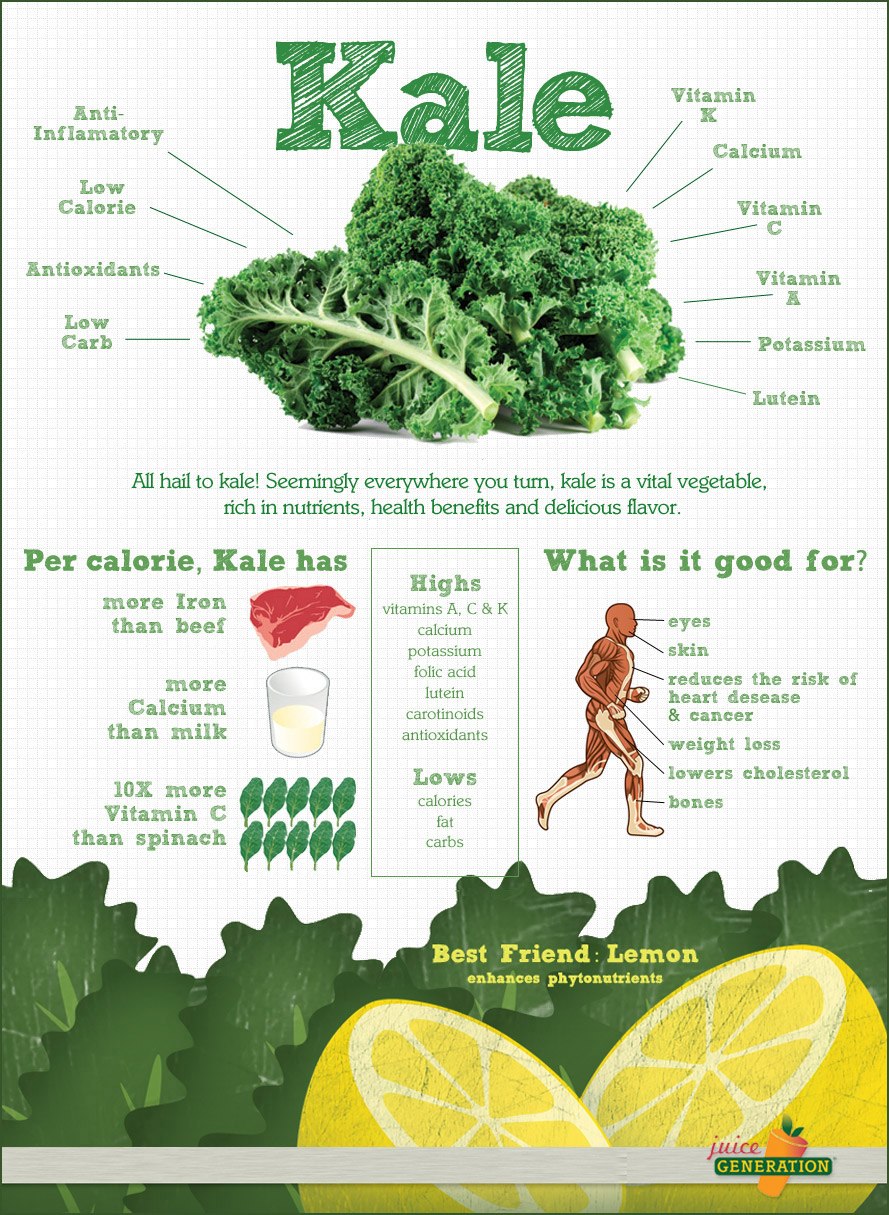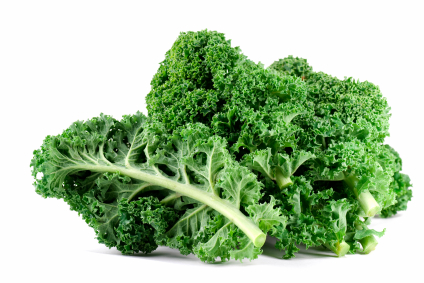Kale or borecole is rich in numerous health benefiting polyphenolic flavonoid compounds such as lutein, zea-xanthin, and beta-carotene, and vitamins than found in any other green leafy vegetables. It is widely cultivated across Europe, Japan, and the United States for its “frilly“leaves.
Botanically, the plant belongs to the “cabbage” (Brassica) family subgroup of Brassica oleracea (acephala group), characteristic of headless, leafy greens. It features close similarity in growth and appearance to collard greens. Other common vegetables closely related being: broccoli, cauliflower, brussels sprouts, etc.
Kale is being called “the new beef”, “the queen of greens” and “a nutritional powerhouse.” Here are great benefits of adding more kale to your diet:
1. Kale is low in calorie, high in fiber and has zero fat. One cup of kale has only 36 calories, 5 grams of fiber and 0 grams of fat. It is great for aiding in digestion and elimination with its great fiber content. It’s also filled with so many nutrients, vitamins, folate and magnesium as well as those listed below.
2. Kale is high in iron. Per calorie, kale has more iron than beef. Iron is essential for good health, such as the formation of hemoglobin and enzymes, transporting oxygen to various parts of the body, cell growth, proper liver function and more.
3. Kale is high in Vitamin K. Eating a diet high in Vitamin K can help protect against various cancers. It is also necessary for a wide variety of bodily functions including normal bone health and the prevention of blood clotting. Also increased levels of vitamin K can help people suffering from Alzheimer’s disease.
4. Kale is filled with powerful antioxidants. Antioxidants, such as carotenoids and flavonoids help protect against various cancers.
5. Kale is a great anti-inflammatory food. One cup of kale is filled with 10% of the RDA of omega-3 fatty acids, which help, fight against arthritis, asthma and autoimmune disorders.
6. Kale is great for cardiovascular support. Eating more kale can help lower cholesterol levels.
7. Kale is high in Vitamin A.Vitamin A is great for your vision, your skin as well as helping to prevent lung and oral cavity cancers.
8. Kale is high in Vitamin C. This is very helpful for your immune system, your metabolism and your hydration.
9. Kale is high in calcium. Per calorie, kale has more calcium than milk, which aids in preventing bone loss, preventing osteoporosis and maintaining a healthy metabolism. Vitamin C is also helpful to maintain cartilage and joint flexibility
10. Kale is a great detox food. Kale is filled with fiber and sulfur, both great for detoxifying your body and keeping your liver healthy.
Kale is One of the Most Nutrient-Dense Foods
Kale is considered one of the most nutrient-dense foods on the planet, due to its rich concentration of fiber, vitamins, minerals, and antioxidants.
It competes very well when compared to other vegetables. In fact, it actually contains more polyphenols than cauliflower and broccoli.
According to the Aggregate Nutrient Density Index Scale — which measures foods based on their nutrient content — kale has a score of 1000, which is the highest score a food can get.
Some of the notable antioxidants found in kale include:
- chlorogenic acid
- anthocyanins (purple variety)
- quercetin
- kaempferol
Kale is also a particularly rich source of:
- vitamin C
- magnesium
- beta carotene
- manganese
- folate
- potassium
- vitamin K



No comments:
Post a Comment
Note: Only a member of this blog may post a comment.